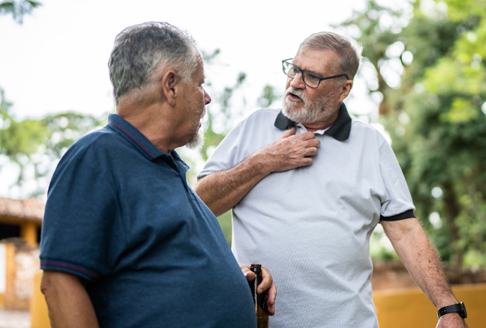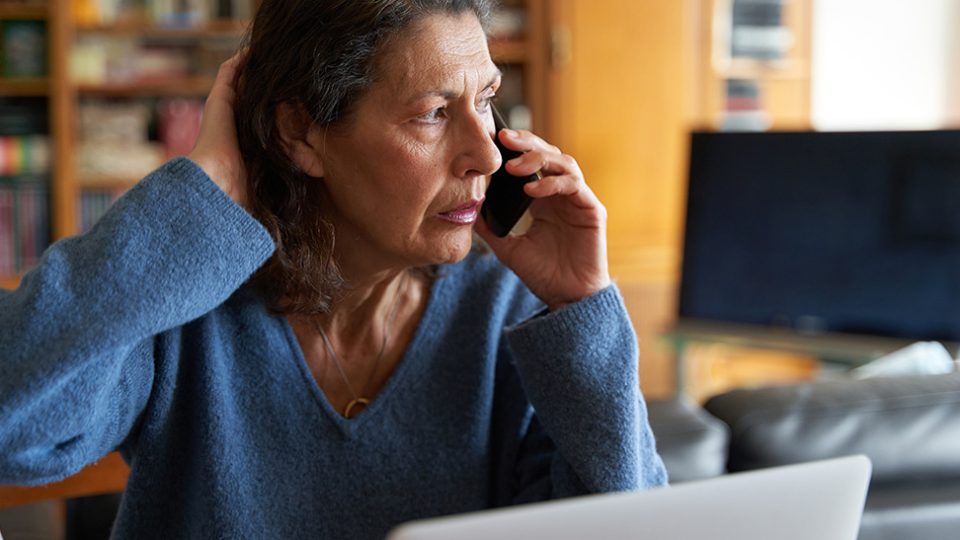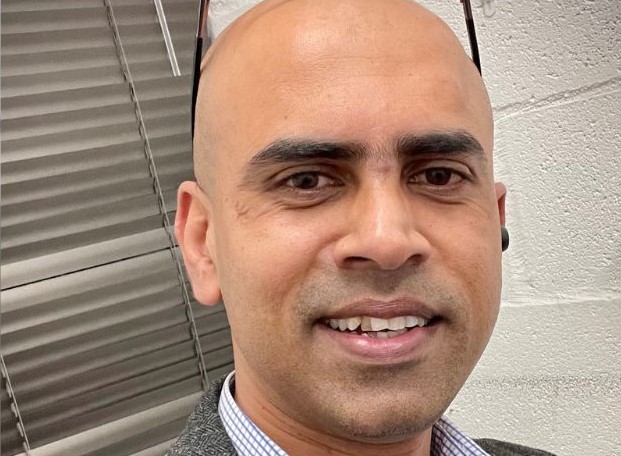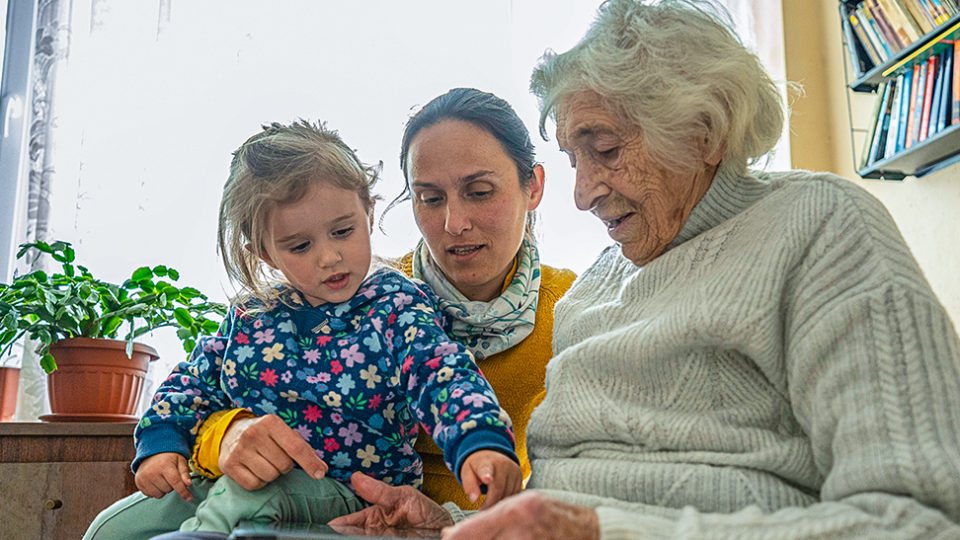How supportive listening opens the path to healing
- 18 Jul 2022

Sometimes our strongest power is to pause and listen to someone.
So often we are compelled to try and think about ways to fix problems. We see people going through challenges and perhaps think, ‘How can I fix this situation?’ or ‘How can I fix this person?’.
The truth is, sometimes we need to take a step back and allow that person to tell their story. To unburden their grief and loss. To acknowledge their own pain and loneliness. To express their sorrow and confusion where life has not turned out the way they had hoped.
And so it was the case with Doug*, a resident at one of Baptcare’s Aged Care Communities.
Ben*, our Spiritual Care Team member, noticed Doug chose to isolate himself from other residents. He could be found in his room most times, except for meals. Doug really didn’t talk much, unless asked a question. He seemed marooned in his own world and by his own choice.
But Doug’s heart was breaking.
One day, Ben started chatting with Doug. Tears started to well in Doug’s eyes as he talked about what was troubling him.
Doug spoke about how his wife had left him while his children were young. The pressure of having very little money and having to pay child support was immense. Now much older, Doug felt his children no longer wanted to know him. ‘They can see my number ringing on their phone, but they won’t answer’, he said. ‘Even the one who had been looking after me before – he said he won’t do it anymore’.
There was bitterness in Doug’s voice. Feelings of hurt and abandonment. An inability to get past what was lost. A belief that he was owed more.
Nobody can know for sure what happened in Doug’s life to bring about these broken family relationships. It was one side of the story – and as we know, when relationships break down, there can be hurt on both sides. Feelings of disappointment, blame and anger are common.
But it is not the role of spiritual care to judge who had done what. It was not Ben’s role to take sides. And ultimately, he realised, it was not his role to work out for Doug how he should fix this.
Rather, it was to listen to Doug tell his story and express his emotions.
What Doug needed was for someone to listen to all the thoughts and feelings going on inside him. The ones that run around and around our minds, trapping us in negative thoughts. The ones that stop us from acceptance and healing.
Our Spiritual Care help provide support to Baptcare clients, like Doug, each day.
Approaching every person with compassion and tenderness is key to our supportive listening. Whether experiencing a personal challenge through a life transition, bereavement and loss – or just looking for comfort and encouragement. Everyone’s story is different. But the need to have someone to talk to is the same.
Spiritual care is simply about truly hearing what is important for each client to express and share about their lives. It’s through listening that our clients experience the respect of being heard. Which is the first step in the path to healing.
Baptcare continues to provide Doug with emotional and spiritual support as he journeys at his own pace, working through the loss and disconnections in his life. The door is now open to healing and acceptance. Ben and other staff continue to bring a tender and compassionate presence in his life, aimed at strengthening his spiritual wellbeing.
If you are a Baptcare client and looking for spiritual support, consider contacting our Spiritual Care and Chaplaincy Team member on your site or through your regular Baptcare staff contact. We are here to listen.
Our support is confidential, personalised and designed for people of all backgrounds and beliefs. Talk to us today.
*Names and image have been changed to protect privacy.
Community news
-

Tips for dealing with life in the sandwich generation
This is part two in our blog series on the sandwich generation. Here are some tips for dealing with the carer’s squeeze experienced by a growing number of Australians, particularly women. Key points: Summary of challenges facing the sandwich generation Tips for dealing with the challenges System reforms needed
- 11 Jul 2025
-

Meet Suraj | Hospitality Manager Residential Aged Care
What makes a residential aged care community truly feel like home? It’s the perfect blend of a warm, inviting atmosphere, devoted and compassionate staff, and thoughtfully crafted meals that foster an undeniable sense of belonging. Today we meet Suraj Ligade, Baptcare’s Hospitality Manager, to explore how his passion for care and culinary excellence nourishes both the bodies and spirits of our treasured aged care residents.
- 10 Jul 2025
-

The sandwich generation phenomenon unpacked
Welcome to the first of two blogs on the theme of the sandwich generation in Australia. In this one, we’ll cover the definition of the sandwich generation, the different types of caring that fall within it and some of the issues those in the sandwich generation face. The second blog will cover tips for dealing with life in the sandwich generation
- 02 Jul 2025
